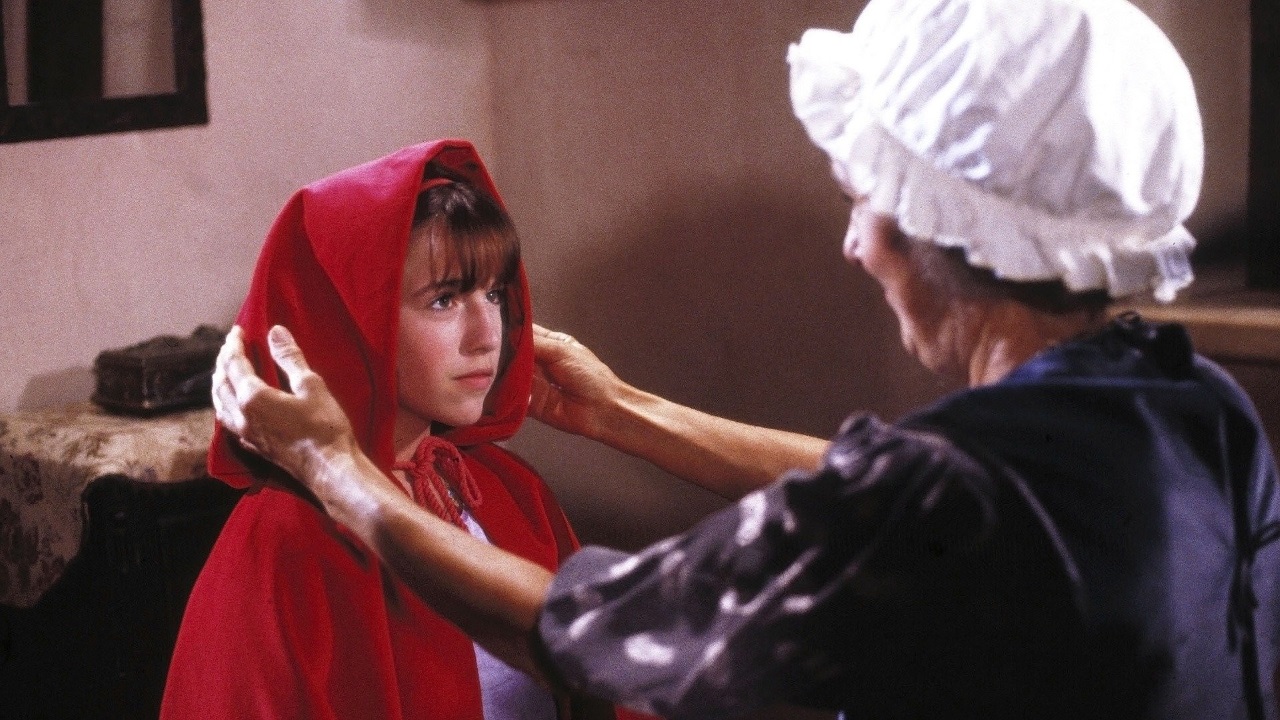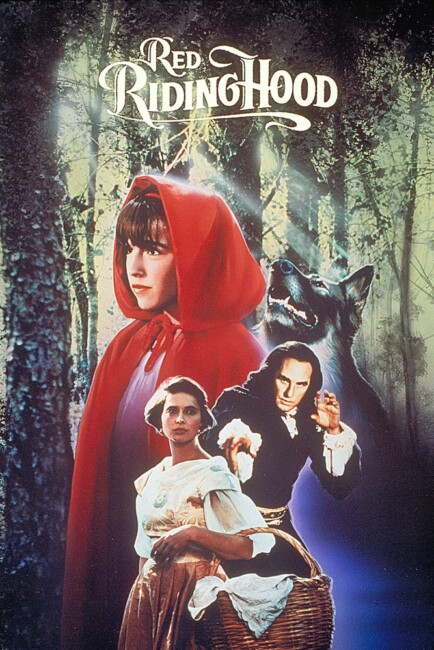Crew
Director – Adam Brooks, Screenplay – Carole Lucia Satrina, Producers – Yoram Globus & Menahem Golan, Photography – Hilik Ne’eman & Danny Shneur, Music – Stephen Lawrence, Lyrics – Michael Korie, Special Effects Supervisor – John Hargreaves, Art Direction – Miki Zachar. Production Company – Golan-Globus/G&G Studios.
Cast
Craig T. Nelson (Sir Godfrey/Perceval), Amelia Shankley (Linet/Red Riding Hood), Isabella Rossellini (Lady Jean), Rocco Sisto (Dagger), Helen Elazaray (Nanny Bess), Ammon Meskin (Red Peter)
Plot
The heartless and evil Sir Godfrey has usurped his brother Perceval’s throne. Godfrey is determined to marry Perceval’s wife Lady Jean, who has been forced to live as a peasant. Jean’s mother Nanny Bess uses her folk remedies to heal a man who has been badly beaten in Godfrey’s dungeons. Godfrey has sold his soul so that his manservant Dagger can be a werewolf. He sends Dagger forth to find out about Nanny Bess’s magic. Nanny Bess gives Jean’s young daughter Linet a red hooded cloak that she says will protect her. In wolf form, Dagger comes across Linet in her red riding hood while walking through the woods to her grandmother’s …
In the 1980s, Israeli producers Menahem Golan and Yoram Globus made a great many Charles Bronson and Chuck Norris action films and several genre works. Their company Cannon Films has a legendary reputation. Amid this, Golan-Globus also created a series of children’s fairytale adaptations under the label Cannon Movie-Tales. Others of these Cannon Movie-Tales included Beauty and the Beast (1987), The Emperor’s New Clothes (1987), The Frog Prince (1987), Hansel and Gretel (1987), Puss in Boots (1987), Rumpelstiltskin (1987), Snow White (1987) and Sleeping Beauty (1988). Many of these featured a number of subsequent star names, including eyebrow-raising names like Christopher Walken and Helen Hunt. However, all of these Cannon Movie-Tales were cheaply shot and are poorly made.
Red Riding Hood is one of the better of the Cannon Movie-Tales, which is not saying much considering how sad and misbegotten most of them are. As all the others tales are, Red Riding Hood is a cheap and tatty production – the werewolf transformation, for example, is only shown as a series of dissolving stills – not even the primitive live-action lap dissolves of the Lon Chaney Jr The Wolf Man (1941). (This was in the day well before morphing and CGI). The film is padded with some banal songs – at the screening where I saw the film, the kids present spent the time running around the theatre during these interludes.
Realising they could not get much of a feature-length plot out of a fairy-tale that consists only of a walk through the woods and then a punchline, Golan-Globus have kept the telling of the events that take place in the fairytale until right at the end. For the bulk of the film, the scriptwriter has swiped a few leaves from Robin Hood in the story of the cruel King John who usurped his brother’s throne.

Unfortunately, this has the habit of making the fairy-tale, when it is reached, somewhat of an irrelevancy. The “What big eyes you have, grandmother” bit is nicely handled but the rest of the piece has been pitched to the family market so much that any meaning has been sanitised out of it – the wolf’s eating of Red Riding Hood is never shown, the Grandmother is allowed to survive and there is the totally unbelievable end where the wolf is cut open and Amelia Shankley emerges without even a drop of blood on her.
Craig T. Nelson, best known for Poltergeist (1982), tv shows like Coach (1989-97) and of course the voice of Mr Incredible in The Incredibles (2004), is a performer whose entire acting range consists of a single blank, glassy-eyed expression. He plays here with a grotesquely hammy theatricality and fails to convince in the part for a second. His sole exception is the Man Without a Heart number where he opens up with a hearty baritone, momentarily giving the character some presence and stature in an otherwise zombified performance. (The other worthwhile musical number is Rocco Sisto’s slinkily, seductive Good at Being Bad song). The film is at least worth watching for the classic beauty of Isabella Rossellini. She plays her part convincingly, even if the film fails to make any worthwhile use of her.
Not many of the writers/directors of these Cannon Movie-Tales ever went onto anything of note. One exception here might be director Adam Brooks who subsequently went onto write films like French Kiss (1995), Beloved (1998), Practical Magic (1998), Wimbledon (2004), Bridget Jones: The Edge of Reason (2004) and to write/direct The Invisible Circus (1999) and Definitely, Maybe (2008).


